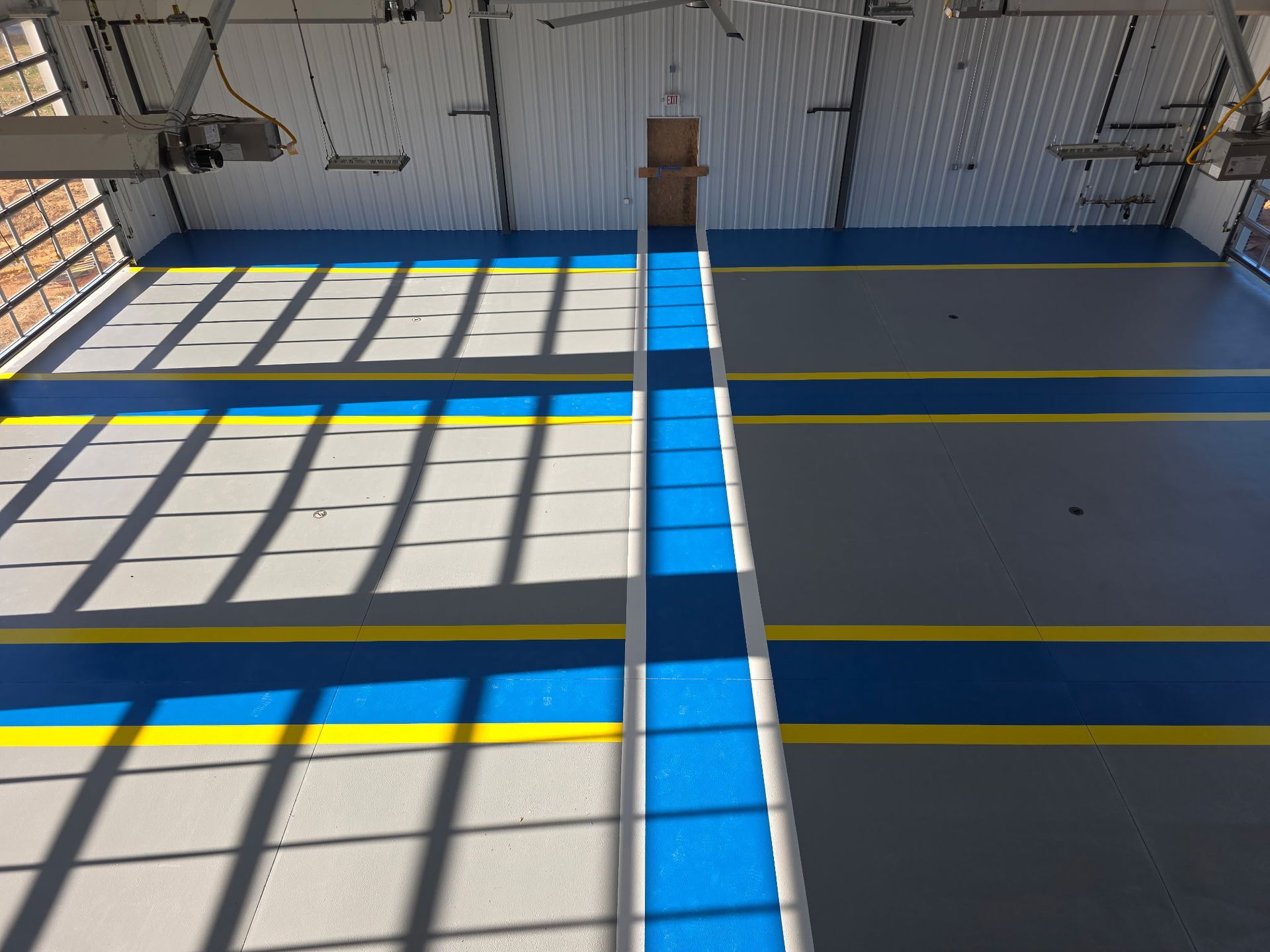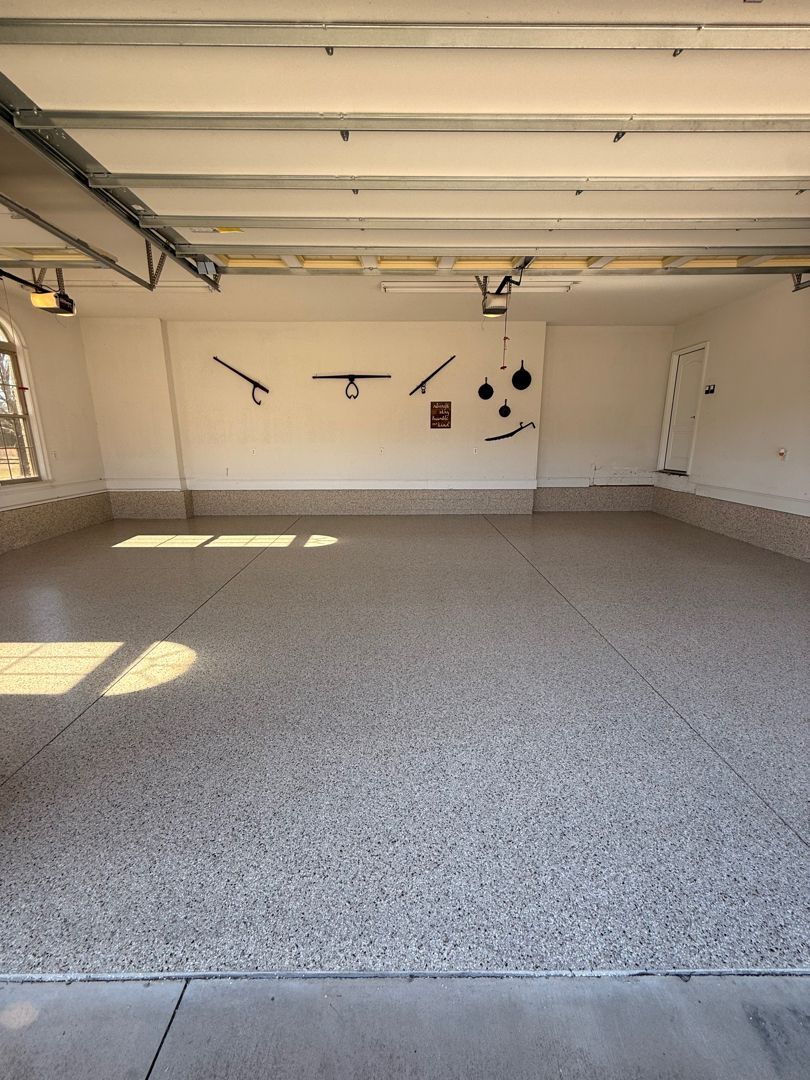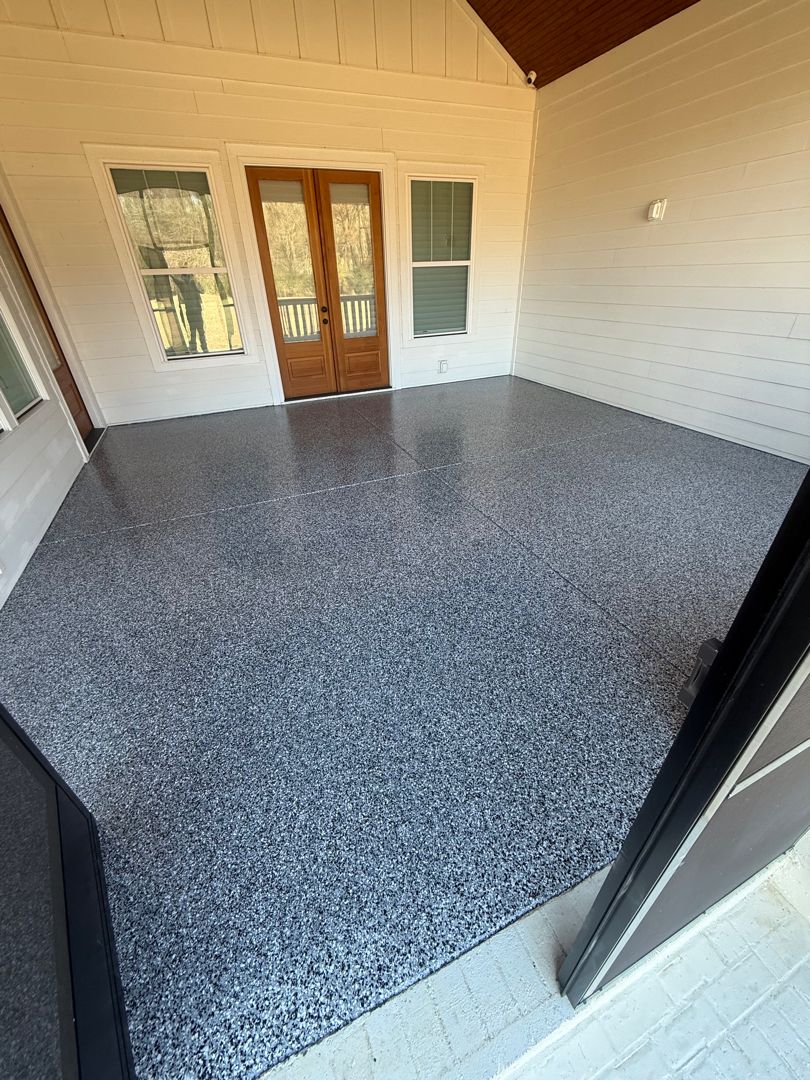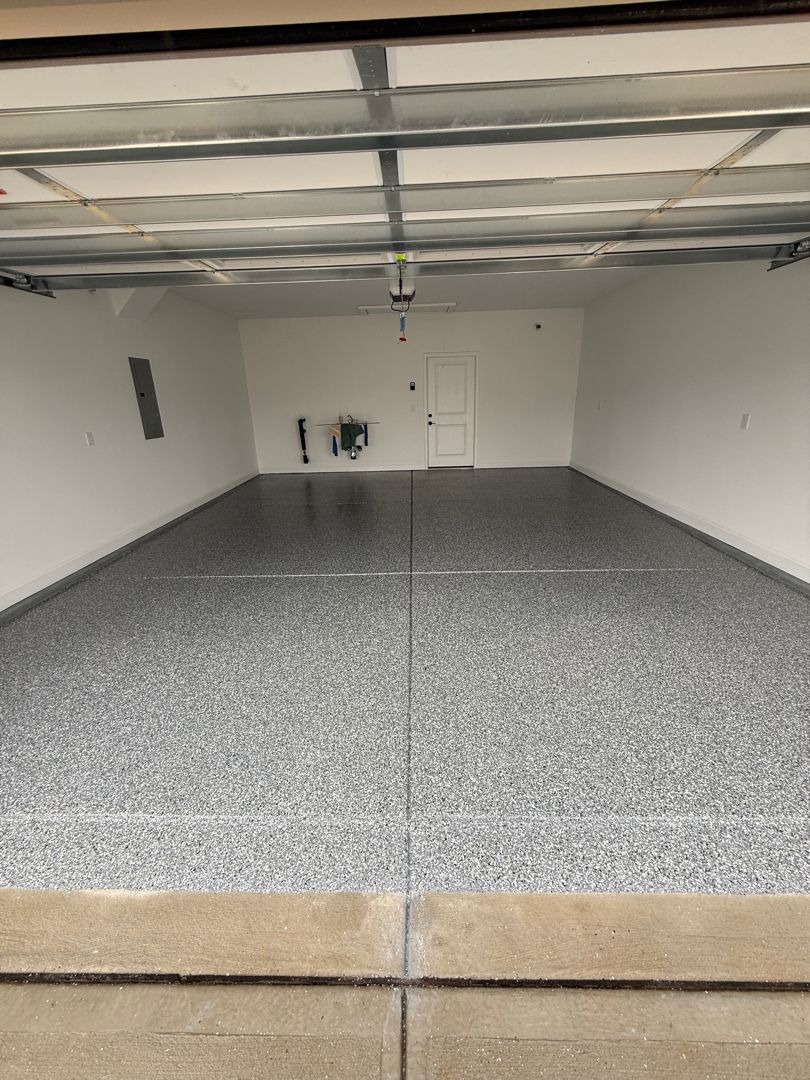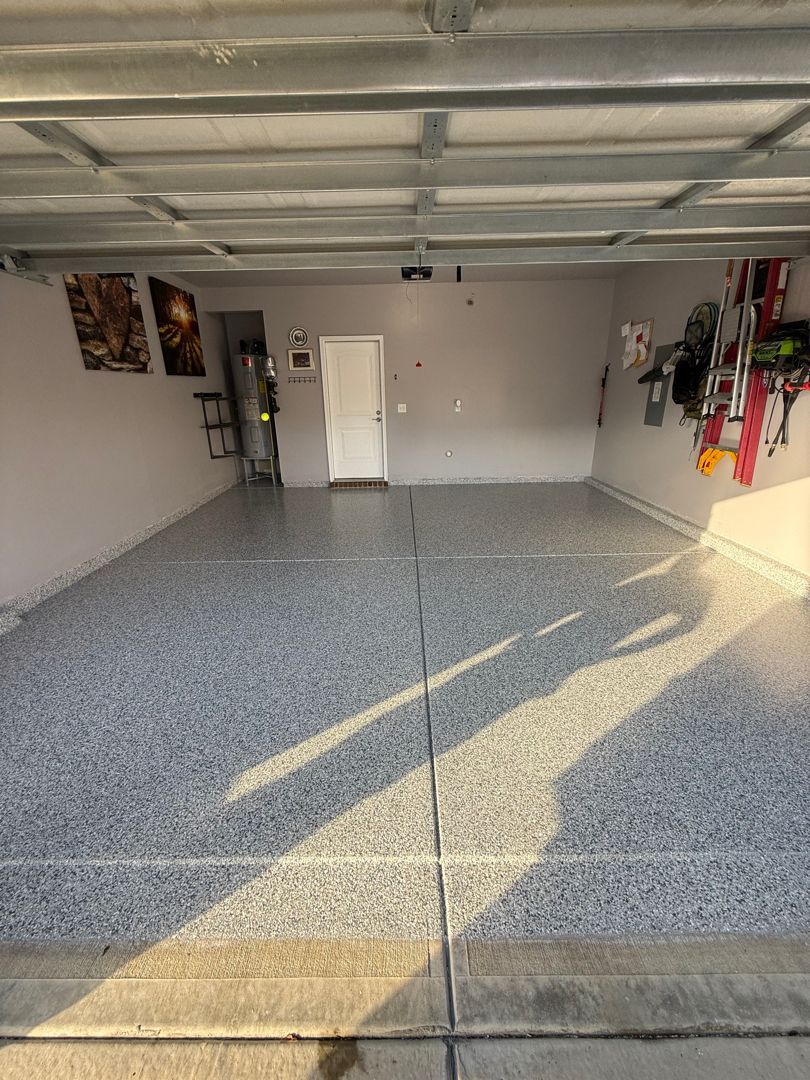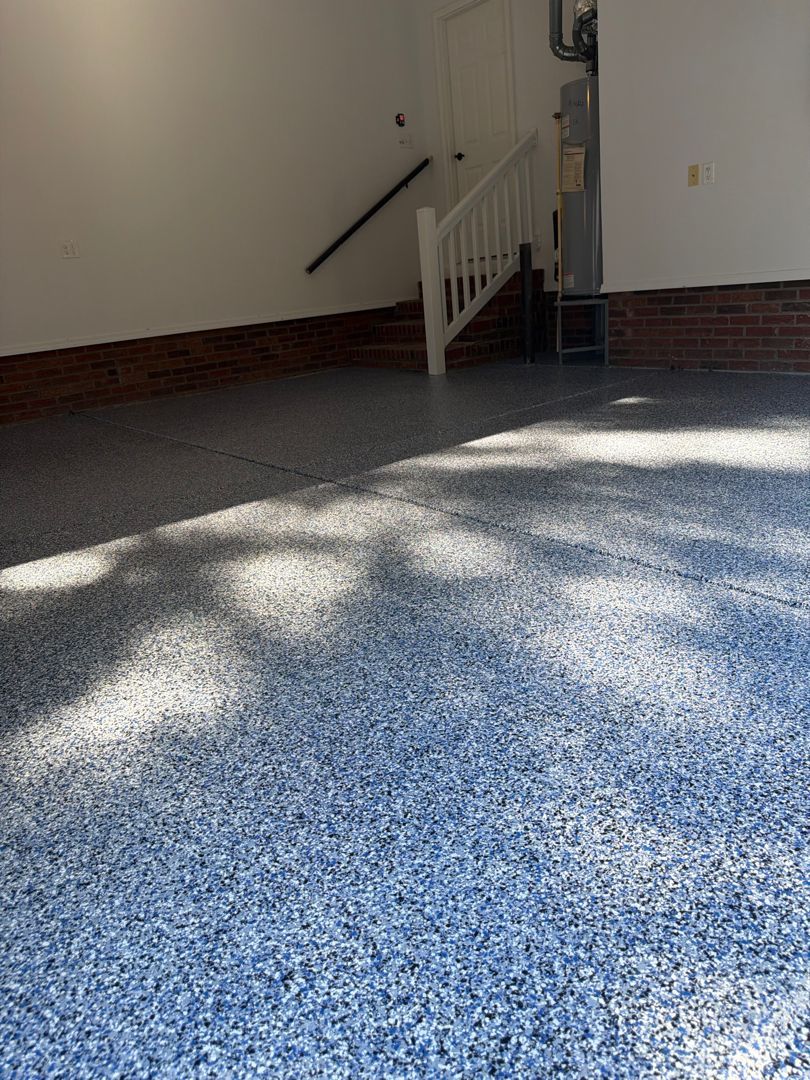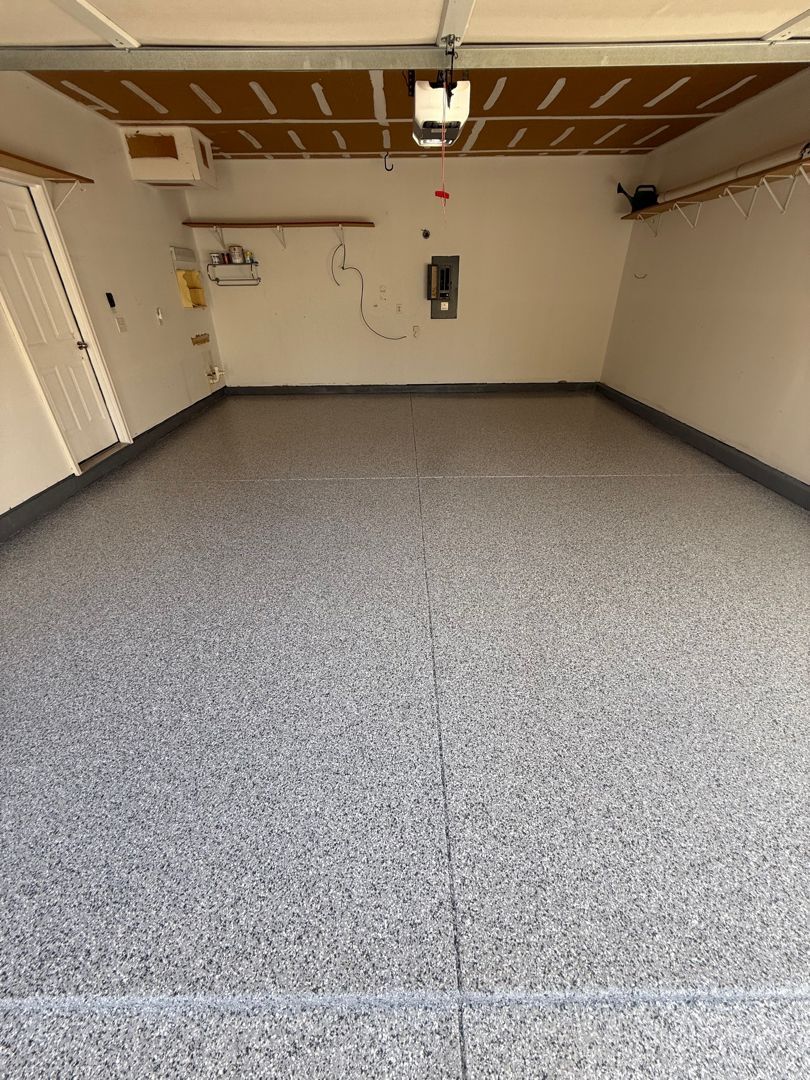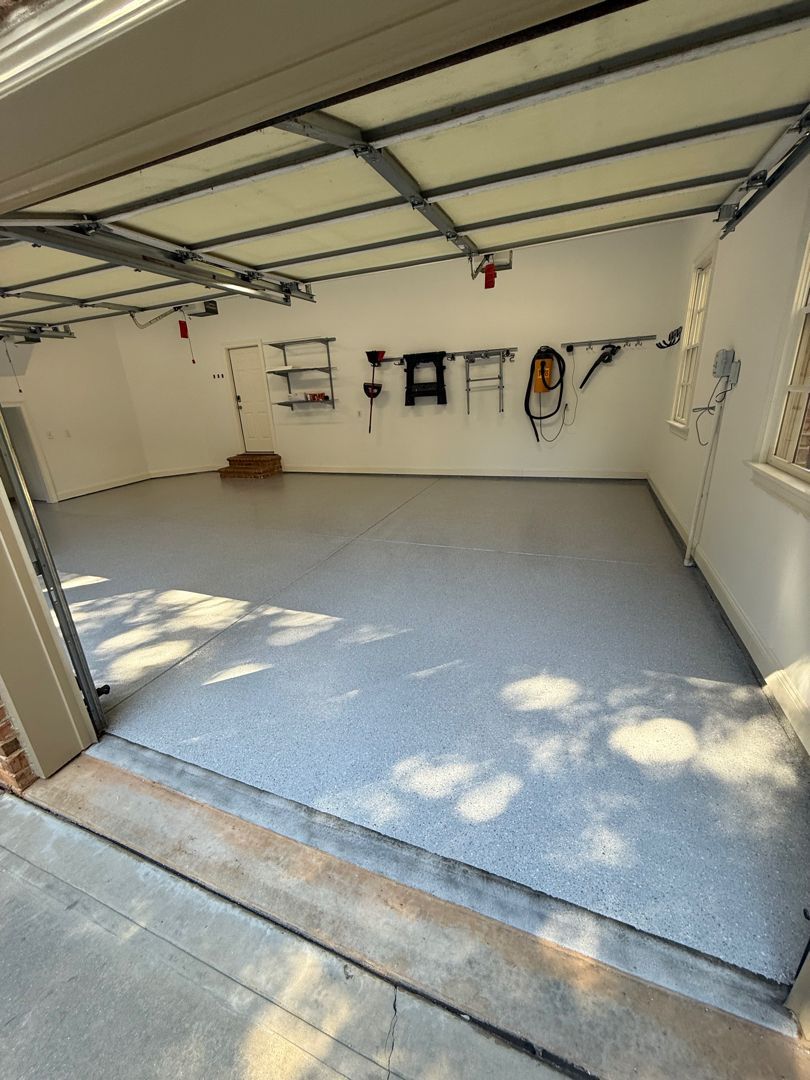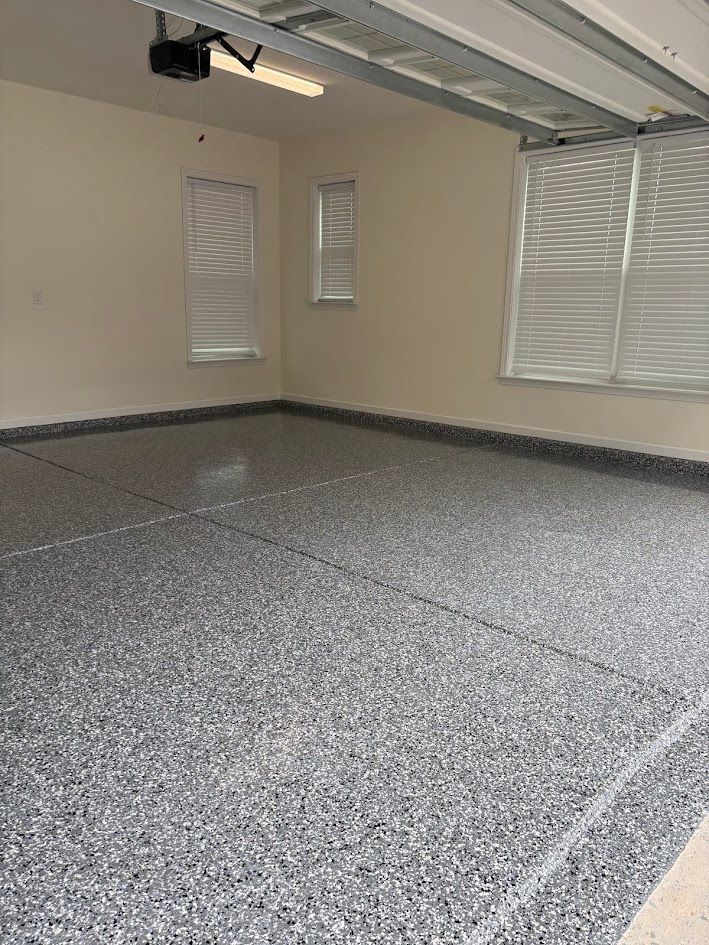How to Maintain & Extend the Life of Your Floor Coating
Six Simple Cleaning & Maintenance Tips to Protect Your Epoxy Floor
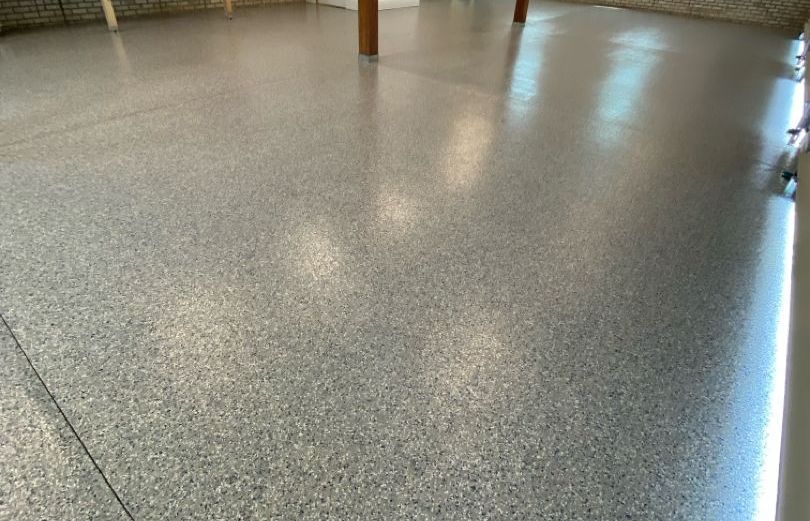
Investing in high-quality floor coatings is a great way to enhance durability, aesthetics, and protection for your floors. However, to maximize their lifespan, proper maintenance is essential. Whether your floor is coated with epoxy, polyurethane, or another protective layer, following the right care routine can keep it looking great and performing well for years.
Here are key tips to help maintain and extend the life of your floor coating:
1. Regular Cleaning & Debris Removal
Dirt, dust, and debris can act like sandpaper on coated surfaces, causing premature wear. To prevent this:
- Sweep or dust mop floors daily to remove loose dirt.
- Use a soft-bristle broom or microfiber mop to avoid scratching the surface.
- For larger spaces, consider using an automatic floor scrubber with a non-abrasive pad.
In high-traffic areas, such as garages and commercial spaces, more frequent cleaning may be necessary to prevent buildup.
2. Use Proper Cleaning Solutions
Harsh chemicals can break down floor coatings over time. To maintain your floor's protective layer:
- Avoid acidic, ammonia-based, or bleach-containing cleaners.
- Use pH-neutral cleaning solutions specifically designed for coated floors.
- Mop with warm water and mild detergent for routine cleaning.
- Rinse thoroughly to prevent residue buildup, which can make floors slippery.
- For epoxy and polyurethane coatings, diluted ammonia (about 2-3 ounces per gallon of water) is a safe and effective cleaning solution.
3. Protect Against Heavy Loads & Impact Damage
While coated floors are built to withstand wear and tear, excessive weight and impact can lead to cracks and chips. To prevent damage:
- Use protective pads under heavy furniture or equipment.
- Avoid dragging sharp or heavy objects across the floor.
- Place mats at entry points to catch debris and reduce wear.
- If using rolling carts or machinery, ensure wheels are made of soft, non-marking material.
- In industrial or garage settings, consider installing protective mats in high-impact zones to reduce stress on the coating.
4. Address Spills & Stains Immediately
Spills—especially from oil, grease, or chemicals—can degrade floor coatings if left unattended. To minimize damage:
- Wipe up spills immediately with a soft cloth or absorbent pad.
- Use a degreaser for stubborn stains, but ensure it is safe for coated surfaces.
- In areas prone to spills, such as garages or kitchens, consider adding an extra sealant layer for protection.
- Prompt cleaning helps prevent stains from penetrating the coating and maintains its original appearance.
5. Perform Periodic Maintenance & Resealing
Even with proper care, all floor coatings will wear over time. To extend their lifespan:
- Schedule periodic resealing or reapplication of topcoats as needed.
- Inspect floors regularly for small cracks, chips, or peeling, and repair them promptly.
- For outdoor-coated surfaces, apply UV-resistant sealants to protect against fading and weather damage.
- By staying proactive with maintenance, you can prevent minor issues from turning into costly repairs.
6. Outdoor & Patio Floor Coating Care
Outdoor floor coatings, such as those used on patios and pool decks, face unique challenges from weather exposure and foot traffic. To keep them in top condition:
- Sweep away leaves and debris to prevent moisture buildup.
- Use weather-resistant sealants to protect against fading and cracking.
- Periodically rinse with a garden hose or by pressure washing on a low setting.
